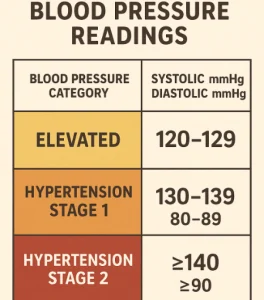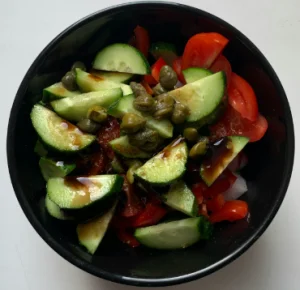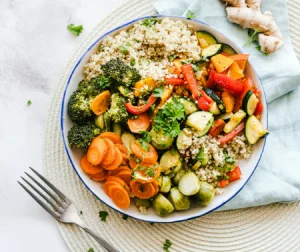High blood pressure, or hypertension, affects over 1 billion people worldwide and is a leading cause of heart disease, stroke, and kidney failure. Defined by elevated pressure within the arteries, it’s often called a “silent killer” due to its lack of obvious symptoms.
Blood pressure readings consist of two numbers: systolic pressure (the top number) and diastolic pressure (the bottom number). A normal reading is under 120/80 mmHg. Readings consistently above 130/80 mmHg fall into the high blood pressure category.
With growing concern over medication side effects, many people are seeking natural remedies for high blood pressure. In this article, you’ll learn about safe, science-backed lifestyle changes, including dietary improvements, exercise, stress reduction, and evidence-based supplements.
Understanding High Blood Pressure

Blood pressure reflects the force of blood against artery walls. It is measured in millimeters of mercury (mmHg) and presented as systolic over diastolic.
Systolic pressure measures the force when the heart contracts.
Diastolic pressure indicates force when the heart rests between beats.
Hypertension may be:
Primary (essential): no identifiable cause; accounts for 90–95% of cases.
Secondary: caused by another condition (e.g., kidney disease or medication side effects).
Untreated hypertension can lead to heart attacks, strokes, vision loss, and cognitive decline. While natural hypertension treatment can be effective, it’s important to consult a doctor if blood pressure is consistently high or you’re on medication.
Diet-Based Approaches

DASH Diet Benefits
The DASH diet (Dietary Approaches to Stop Hypertension) is a top-recommended nutritional plan to lower blood pressure naturally.
Structure & Principles:
Emphasizes fruits, vegetables, whole grains, lean proteins, and low-fat dairy
Reduces saturated fats, cholesterol, and added sugars
Encourages sodium reduction and potassium intake
Research-Backed Results: Clinical studies show DASH can lower systolic blood pressure by 8–14 mmHg within weeks.
Sample Meal Plan:
Breakfast: oatmeal with berries and flaxseed
Lunch: grilled chicken salad with olive oil dressing
Dinner: baked salmon, quinoa, and steamed broccoli
Snacks: almonds, Greek yogurt, banana
Implementation Tip: Start by reducing processed foods and increasing potassium-rich foods like avocados and sweet potatoes.
Mediterranean Diet Benefits

The Mediterranean diet emphasizes whole foods and healthy fats, making it highly effective for blood pressure management.
Key Components:
Vegetables, legumes, whole grains, nuts, and seeds
Healthy fats like olive oil
Moderate intake of fish, poultry, and dairy
Limited red meat and sweets
Impact on Heart Health: This diet has been linked to diastolic pressure control, improved cholesterol levels, and reduced cardiovascular risk.
Practical Guidelines: Use olive oil instead of butter, eat fish twice a week, and snack on fruits or dark chocolate (in moderation).
Foods that lower blood pressure quickly
High Potassium Foods: bananas, sweet potatoes, avocados, and spinach help balance sodium levels.
Low Sodium Options: fresh produce, unsalted nuts, herbs, and spices instead of processed foods.
Antioxidant-Rich Foods: berries, dark chocolate, and leafy greens support vascular health.
Garlic Extract: contains allicin, shown to aid blood pressure reduction.
Beetroot Juice: boosts nitric oxide production, relaxing blood vessels and lowering pressure.
High Blood Pressure Foods to Avoid
Managing blood pressure naturally isn’t just about what you add—it’s also about what you avoid. Certain foods contribute to sodium retention, inflammation, and blood vessel constriction.
Top Foods to Limit or Eliminate:
Processed meats (e.g., bacon, sausage) – loaded with sodium and preservatives
Canned soups and instant noodles – high in salt and low in nutrients
Pickles and fermented foods with added salt – spikes sodium intake
Fried foods and trans fats – increase inflammation and arterial stiffness
Sugary drinks and desserts – contribute to weight gain and insulin resistance
Alcohol in excess – raises blood pressure and affects medication effectiveness
Pro Tip: Always read labels and aim for low sodium options. The American Heart Association recommends no more than 1,500 mg of sodium per day for most adults with hypertension.
Lifestyle Modifications

Regular Physical Activity
Exercise improves heart health and reduces systolic blood pressure significantly.
Effective Activities:
Brisk walking
Cycling
Swimming
Strength training
Recommendations:
Aim for 150 minutes of moderate activity per week. Even 10-minute sessions throughout the day can make a difference.
Exercise Effects:
Improves vascular elasticity, enhances insulin sensitivity, and supports weight control—all critical for managing blood pressure.
Stress Management Techniques
Chronic stress raises cortisol and blood pressure levels. Natural stress reduction can support hypertension control.
Proven Strategies:
Meditation practice: calms the nervous system
Deep breathing techniques: like 4-7-8 breathing reduce heart rate
Yoga for high blood pressure: improves flexibility and mental clarity
Why It Works:
Stress activates the sympathetic nervous system, narrowing blood vessels. Managing stress helps reverse this.
Sleep Quality Importance
Lack of sleep contributes to hypertension and poor cardiovascular recovery.
Ideal Sleep Duration: 7–9 hours per night
Tips to Improve Sleep Hygiene:
Maintain a consistent bedtime
Limit screen time before bed
Create a cool, dark sleeping environment
Sleep Apnea Warning: If snoring and fatigue persist, get screened—sleep apnea can drive resistant hypertension.
Weight Control Strategies
BMI and Blood Pressure Link: Even modest weight loss can significantly reduce hypertension.
Approach:
Focus on gradual, sustainable changes
Track waist circumference—visceral fat increases cardiovascular risk
Pair dietary changes with activity for better results
Losing 5–10% of body weight can lower systolic pressure by 5–20 mmHg.
Natural Remedies for High Blood Pressure

Evidence-Based Herbal Remedies
Hawthorn Extract: Improves blood vessel function and circulation.
Hibiscus Tea: Naturally lowers blood pressure—drink 1–2 cups daily.
Garlic Supplements: Daily doses of aged garlic extract support hypertension treatment.
Green Tea: Rich in catechins, improves arterial function and blood flow.
Nutritional Supplements For High Blood Pressure
Magnesium Benefits: Helps relax blood vessels. Take 200–400 mg/day.
Potassium Intake: Aim for 3,500–4,700 mg/day from food (not supplements unless prescribed).
Fish Oil Supplements: Contain omega-3s that reduce inflammation and support heart health.
CoQ10: Helps generate cellular energy and may improve diastolic pressure control.
Other Natural Compounds
L-Arginine: Amino acid that boosts nitric oxide production, improving vessel dilation.
Apple Cider Vinegar: Some studies suggest it may help regulate blood pressure—use in moderation.
Flaxseed: High in omega-3s and fiber, linked to cardiovascular health and blood pressure improvement.
Calcium Channel Effects: Some natural compounds (e.g., magnesium, hawthorn) mildly affect calcium flow in vessels.
How to Reduce High Blood Pressure Naturally at Home
If you’re wondering how to reduce high blood pressure naturally at home, the good news is you can start immediately—with simple, daily habits.
Home Strategies That Work:
Start your day with hibiscus tea or beetroot juice
Walk briskly for 20–30 minutes daily
Practice deep breathing exercises for 5–10 minutes
Use garlic and olive oil as cooking staples
Take short breaks to stretch and de-stress throughout the day
Track blood pressure with a home monitor to see progress
Consistency is key. Small steps—done daily—can make a big difference over time.
FAQs About Natural Blood Pressure Management
Can high blood pressure be reversed naturally?
In many cases, yes. While some people require medication, natural remedies for high blood pressure—such as the DASH diet, exercise, weight loss, and stress reduction—can significantly lower readings and even reverse early-stage hypertension with long-term commitment.
What is the fastest way to cure high blood pressure naturally?
There’s no instant cure, but some fast-acting methods include:
Deep breathing or meditation to lower stress-induced spikes
Hibiscus tea or beetroot juice for short-term pressure drops
Cutting salt intake immediately
That said, true reversal happens gradually through sustained lifestyle changes.
What is the best natural medicine for high blood pressure?
Commonly recommended natural options include:
Hawthorn extract
Garlic supplements
Magnesium and potassium
CoQ10 and fish oil
Always consult your doctor before adding supplements to your regimen.
Can apple cider vinegar lower blood pressure?
Some studies suggest that apple cider vinegar may modestly support blood pressure control by improving insulin sensitivity and weight management. It’s not a standalone solution but can complement other natural strategies.
Does turmeric lower blood pressure?
Yes, turmeric—particularly its active compound curcumin—has anti-inflammatory and vascular-supportive properties. When used regularly, it may help lower blood pressure slightly, especially when combined with a healthy diet.
Final Thoughts
Natural remedies for high blood pressure offer a powerful, side-effect-free way to manage and improve cardiovascular health. From whole-food diets like DASH and Mediterranean to herbs like hibiscus and garlic, and lifestyle tools like yoga, sleep hygiene, and magnesium, the path to lower blood pressure is both accessible and empowering.
The key is consistency. Whether you’re just starting or refining your health routine, these remedies can help you take control—naturally.
Next Step: Consider tracking your progress with a blood pressure journal and talking to your doctor about integrating these strategies into your care plan.
- 7+ Proven Home Remedies for Sneezing That Actually Work - August 2, 2025
- 10 Natural Remedies for Eczema Relief - June 5, 2025
- How to Clean Pool Table Felt Without Damaging the Surface - May 9, 2025

